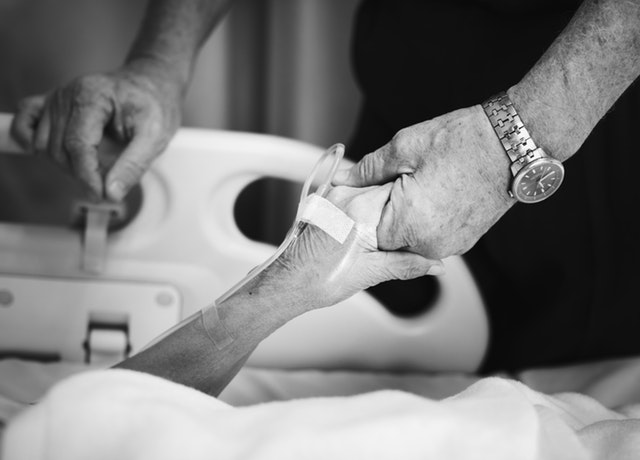How can I help my elderly parent recover from a stroke?
How can I help my elderly parent recover from a stroke?
 Research by the Center for Disease Control states that strokes are the third leading cause of death in the United States. And nearly three-quarters of all strokes occur in people ages 65 or older. Helping an elderly parent recover from a stroke can be a long uphill battle, one your parent’s doctors will help you both through.
Research by the Center for Disease Control states that strokes are the third leading cause of death in the United States. And nearly three-quarters of all strokes occur in people ages 65 or older. Helping an elderly parent recover from a stroke can be a long uphill battle, one your parent’s doctors will help you both through.
What causes a stroke?
Strokes are commonly brought on by a blood clot in the arteries leading to the brain (ischemic stroke), causing “a sudden interruption in the blood supply of the brain,” according to strokecenter.org. Strokes can also be caused by a blood vessel bursting leading to bleeding into the brain, also known as a hemorrhagic stroke.
Common factors that put someone at risk for a stroke include being over the age of 55, male, high blood pressure, high cholesterol, smoking, diabetes, obesity, heart disease, high levels of amino acid in the blood, alcohol use and drug use, among others.
Signs/symptoms of a stroke
Symptoms can arise within a few minutes of the onset of a stroke when brain cells begin to die due to lack of oxygen. The length of a stroke can vary depending on the severity of the stroke. The earlier someone can recognize the symptoms of a stroke, the better, as immediate treatment is crucial to recovery.
Common symptoms include:
- Dizziness
- Trouble walking
- Loss of balance/coordination
- Numbness/weakness/paralysis on one side of the body
- Changes in vision
- Severe, sudden headache
- Problems with speech
Smaller strokes that sometimes show few or no symptoms are called Transient Ischemic Attacks (TIAs).
If the symptoms line up and you think your elderly parent might be suffering from a stroke, call 911 immediately.
Related: What Is a Stroke? What Causes a Stroke? (Medical News Today)
The aftermath of a stroke
Brain damage occurs due to the blood supply not being properly restored to the brain. As such, the body parts controlled by the damaged or dead brain cells can no longer function properly. These affects can be mild or severe, temporary or permanent, depending on the severity of the stroke and how quickly the blood supply can be returned to the damaged/dead brain cells.
Early treatment can be crucial in diminishing the amount of permanent damage done to brain cells, decreasing the amount of disability.
Recovering from a stroke
Half of all people who survive a stroke will still have some sort of disability, usually physical, six months afterwards. Formal physical rehabilitation is usually the first step in the recovery process, which aims to restore independence by “improving physical, mental and emotional functions,” according to stroke.org. Although everyone’s recovery will be different, some simple skills usually return first:
- Sitting up and balancing
- Standing
- Walking
- Legs usually improve before the hands
Recovering from a stroke is a lifelong journey, so it’s important not to lose hope along the way.
Physicians Choice Private Duty can help
Physicians Choice Private Duty, currently serving Eastern Nebraska and Western Iowa, provides seniors and their families a complete understanding of the available options available for stroke recovery and related complications.
All Physicians Choice Private Duty services are directed by registered nurses or social workers with no long-term contracts. Contact us today.
“Physicians Choice Private Duty solves the problems families face in finding home health care providers they can trust. Providers who will focus on strategies that keep parents in their homes. To learn more about our health care services, visit https://private-duty.pchhc.com/services/“


